Peter Kröner
Where we're going we don't need JavaScript - Programming with Type Annotations
#1about 2 minutes
Viewing TypeScript type annotations as a language
TypeScript's type system can be treated as its own functional, set-based programming language.
#2about 2 minutes
Mapping JavaScript syntax to TypeScript type constructs
Learn how JavaScript concepts like variables, functions, and objects correspond to type aliases, generics, and object types.
#3about 2 minutes
Understanding the set-based nature of TypeScript types
All types are fundamentally sets or unions, which simplifies operations and eliminates the need for explicit loops.
#4about 2 minutes
Building a type-level function to filter union types
A practical example demonstrates how to create a generic type that uses conditionals to filter null from a union.
#5about 3 minutes
The motivation for programming with type annotations
Using type-level programming allows you to abstract and enforce core business logic, similar to how high-level languages abstract machine code.
#6about 2 minutes
Deriving concrete types from abstract business rules
Instead of writing types manually, define core business rules as abstract types and then derive all concrete implementation types from them.
#7about 4 minutes
A practical example of a type-safe message bus
The challenge of building a type-safe message bus for a browser extension is introduced as a use case for type-level programming.
#8about 5 minutes
Using generics and keyof to enforce message contracts
The `send` and `on` methods are made type-safe by using generics, the `keyof` operator, and indexed access types derived from a central payload map.
#9about 3 minutes
The benefits of deriving types from first principles
Deriving types from a central source of truth ensures consistency and provides type-level automation across your entire project.
#10about 4 minutes
Q&A on performance, interfaces, and advanced learning
The speaker answers audience questions about runtime performance, the difference between `type` and `interface`, and how to learn advanced TypeScript patterns.
Related jobs
Jobs that call for the skills explored in this talk.
tree-IT GmbH
Bad Neustadt an der Saale, Germany
€54-80K
Intermediate
Senior
Java
TypeScript
+1
Hubert Burda Media
München, Germany
€80-95K
Intermediate
Senior
JavaScript
Node.js
+1
Matching moments
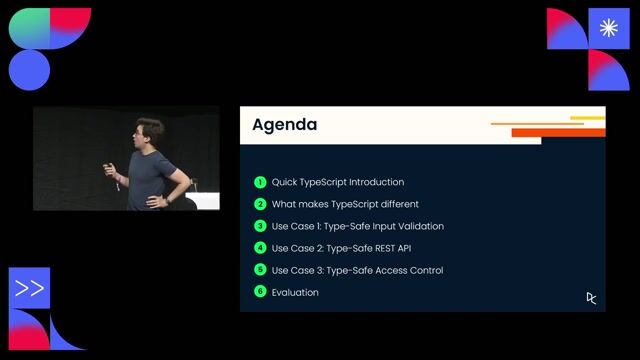
06:53 MIN
An introduction to TypeScript's core type system
Don't compromise on speedy delivery nor type-safety by choosing TypeScript
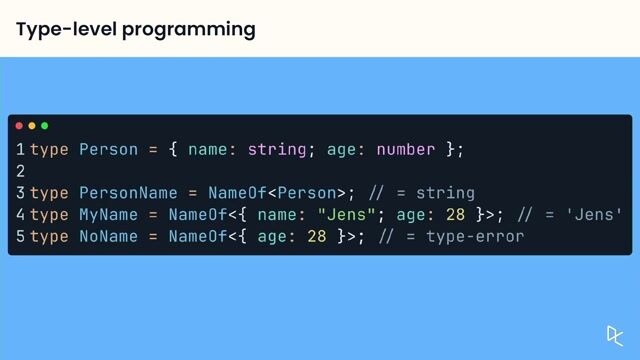
06:35 MIN
Understanding TypeScript's type-level programming capabilities
Don't compromise on speedy delivery nor type-safety by choosing TypeScript
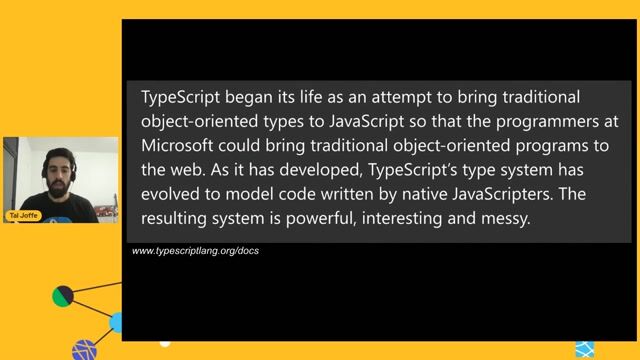
02:37 MIN
Understanding TypeScript's origins and role in scalability
All you need is types
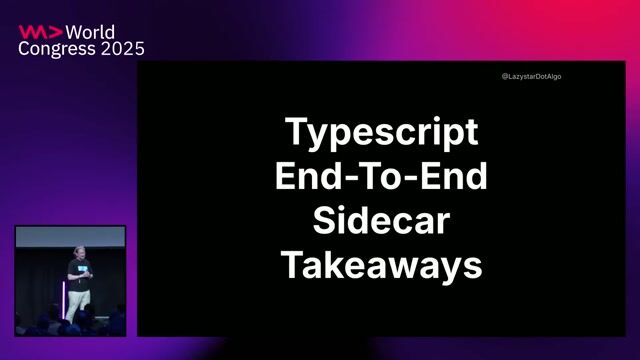
02:11 MIN
Understanding the power and popularity of TypeScript
End-to-End TypeScript: Completing the Modern Development Stack
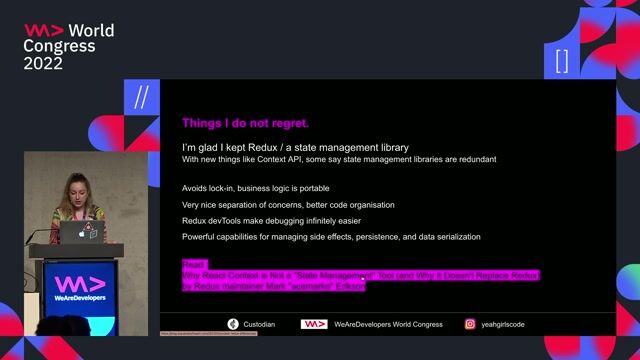
03:47 MIN
Why TypeScript is essential for building large applications
Building a large, complex product from the ground up with typescript & Atomic Design:lessons learned
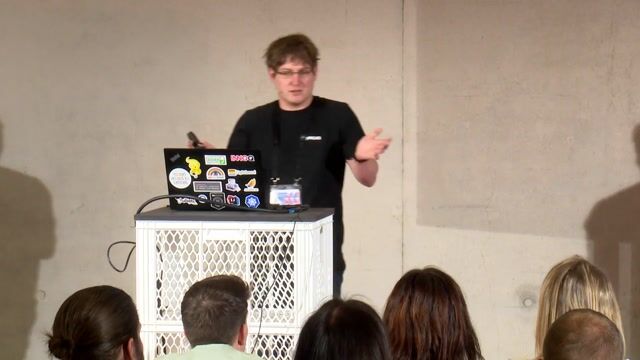
03:44 MIN
Understanding the core design principles of TypeScript
Advanced Typing in TypeScript

05:02 MIN
Reflecting on 30 years of JavaScript and the rise of TypeScript
WeAreDevelopers LIVE – Guten TAG, Web Standards, AI and more
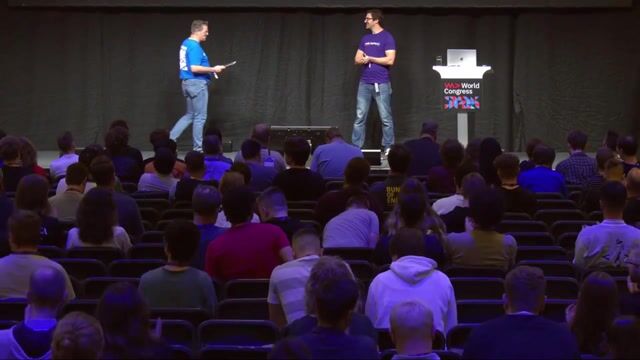
01:38 MIN
How to convince your team to adopt TypeScript
4 Steps from JavaScript to TypeScript
Featured Partners
Related Videos
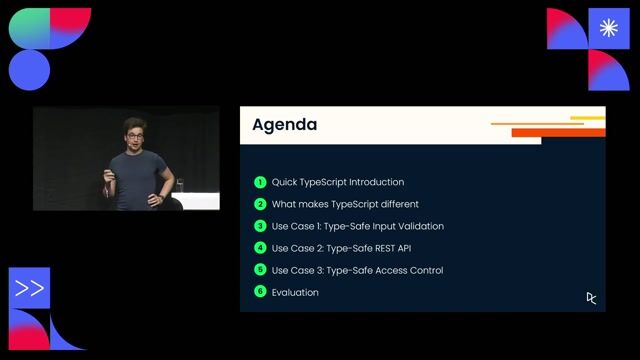 29:44
29:44Don't compromise on speedy delivery nor type-safety by choosing TypeScript
Jens Claes
 28:44
28:44Advanced Typing in TypeScript
Lars Hupel
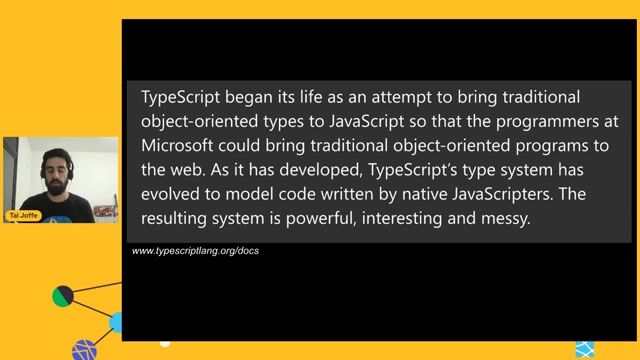 48:56
48:56All you need is types
Tal Joffe
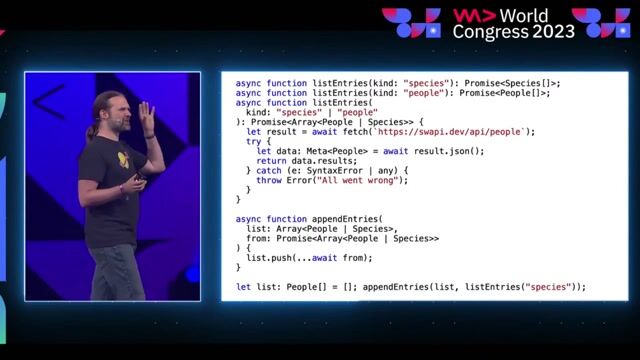 31:13
31:13Lies we Tell Ourselves As Developers
Stefan Baumgartner
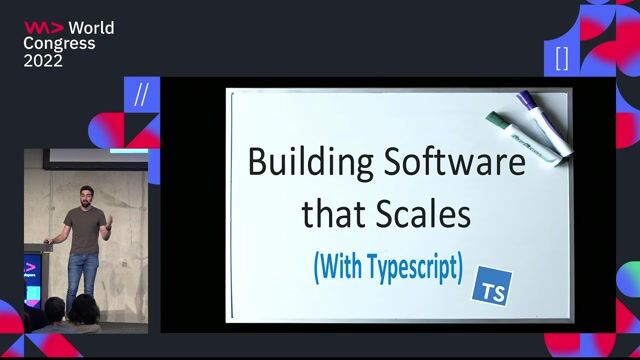 37:18
37:18Building software that scales with Typescript
Tal Joffe
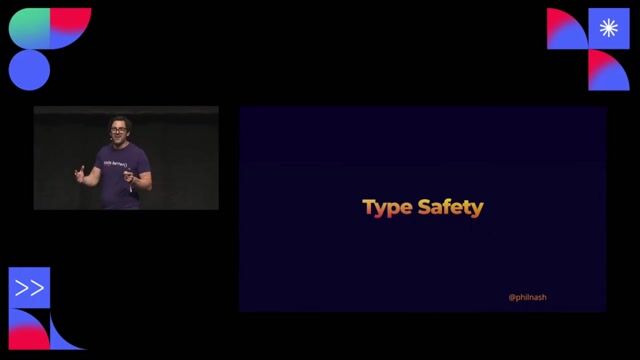 32:28
32:284 Steps from JavaScript to TypeScript
Phil Nash
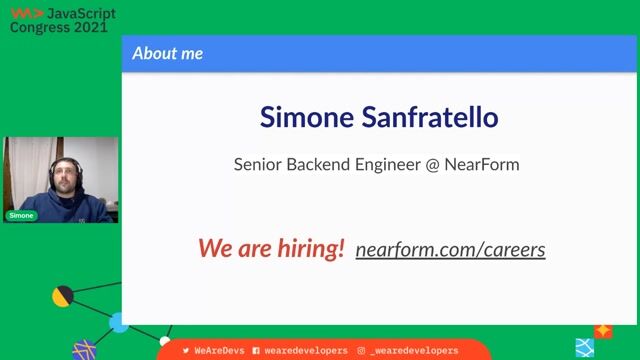 43:27
43:27Do TypeScript without TypeScript
Simone Sanfratello
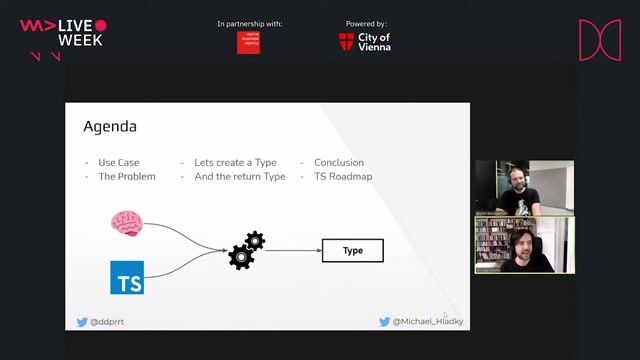 43:20
43:20The Art and Craft of Type Development
Michael Hladky & Stefan Baumgartner
Related Articles
View all articles



From learning to earning
Jobs that call for the skills explored in this talk.

Confideck GmbH
Vienna, Austria
Remote
Intermediate
Senior
Node.js
MongoDB
TypeScript





FUNKE Mediengruppe
Berlin, Germany
Remote
Azure
TypeScript
Google Cloud Platform
Amazon Web Services (AWS)


hsag Heidelberger Services AG
Remote
Senior
API
REST
Azure
MySQL
+7
